Nearly everyone with a website wants that website to have more traffic. Traffic is how you grow a reputation, build a career, and make money. So it stands to reason that you would want to drive more traffic to your site however you can. One of the biggest strategies on the modern internet for traffic generation is content marketing, but what does that mean?
Here are 20 different ways to drive traffic to your website, mostly focused on leveraging good writing.
This one is easy to say but hard to do. Writing content that has deep value to it means understanding what your potential audience is looking for and providing it to them. It might be information, it might be instructions, it might be guidance, a comparison between products or services, or something completely different.

In fact, a huge part of modern marketing is figuring out what your audience wants, so I'm probably doing you a bit of a disservice by glossing over it. Luckily, there are plenty of excellent guides out there to read and learn.
Writing about a topic isn't easy, but writing with enough expertise to convey it to someone in simple terms is even harder. It requires a functional understanding of the subject (which is why it can be tough to find the right freelancers to write for your topic) and the ability to explain it.

Moreover, you need to be able to format your writing in a way that makes it easy to consume, including breaking it up into chunks, using lists and formatting, and making use of other content format strategies.
To a certain extent, the search engines facilitate an "if you build it, they will come" attitude. However, the truth is, you need to do a bit of encouragement if you want people to actually visit. One of the better ways to do so is by linking to your content on social media, but you need to write a compelling post on that social network as well.
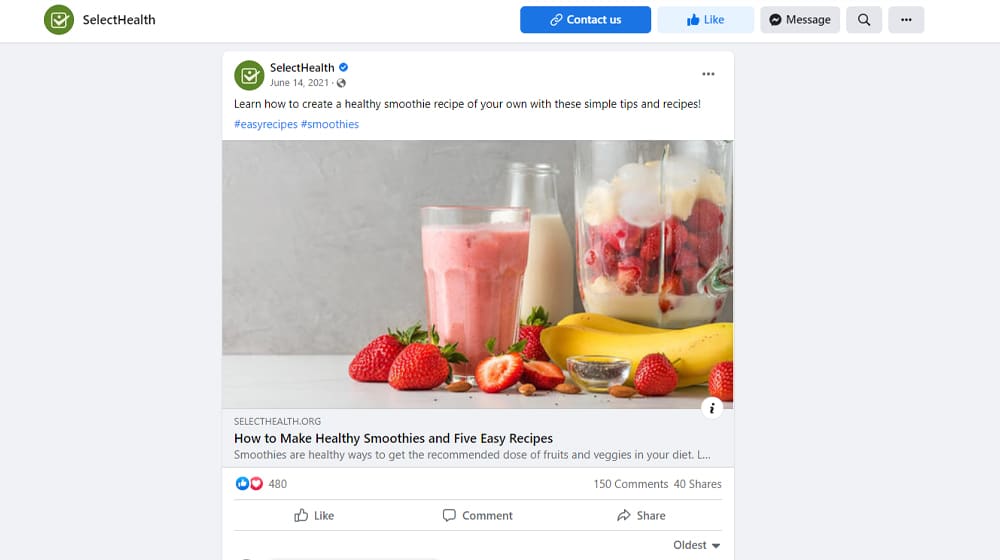
Consider Facebook, Twitter, Reddit, LinkedIn, and Pinterest as options, depending on the kinds of people who are most likely to browse your site. Remember, different social networks have people with different interests, so you need to reach them in the right way, using the right language.
When you write content for your own site, you gather a fraction of the traffic for search queries that include it and from other sites that link to it. It's broad but shallow in most cases. What if you know of another site that has an audience you would very much like to reach? Well, guest posting is an option.

Guest posting involves writing high-quality content – the same as what you would for your own site – but offering it to another site to publish. They put your name on it (and link to you), and you bring in some portion of their traffic.
Sponsored content is like guest posting, except you can be more focused on advertising yourself. Why? Well, usually because you're paying for the opportunity. There are quite a few sites that will happily publish sponsored content, especially if that content is somehow relevant to their audience and topic.

They just charge for the opportunity, with a price that scales depending on the level of traffic and interest the site usually gets. If you have the funds, a good sponsored post can go a long way for traffic generation and brand awareness.
If you're ever struggling to figure out what you want to write, you can always turn to audience engagement. Pick a question and ask your audience to submit their answers, either via a newsletter, a post, or a social media post. Then, compile the best answers, add your commentary to them, and publish it.
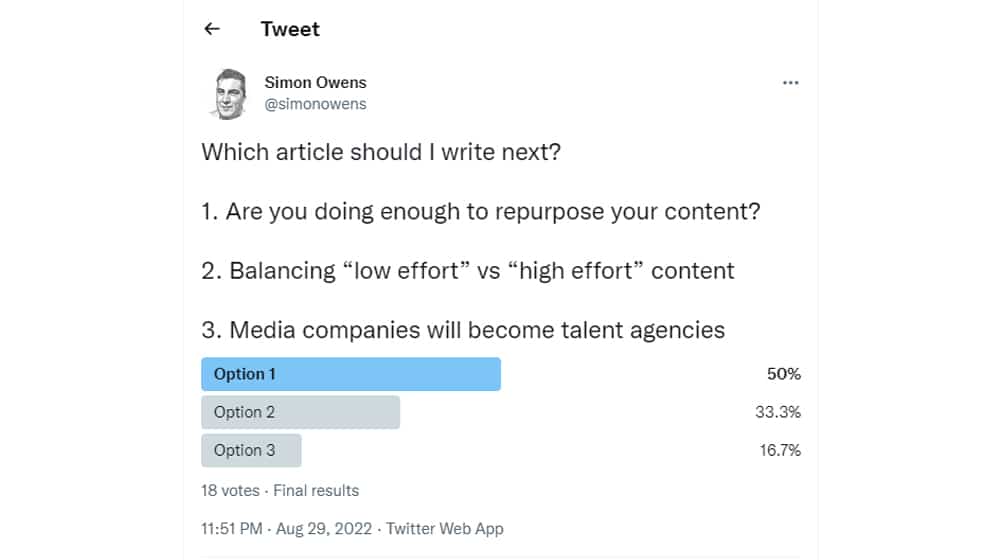
Everyone you quote may even share the post as well. You can do the same thing with other bloggers in your industry; send out a question to as many as you can, and compile the answers in a post to share them with your analysis and commentary.
This is kind of the flip side of the previous option. Look around at comments and on discussion boards to see what kinds of common questions your audience is asking. When you find a question you can answer, write a compelling piece of content that answers that question, and publish it.
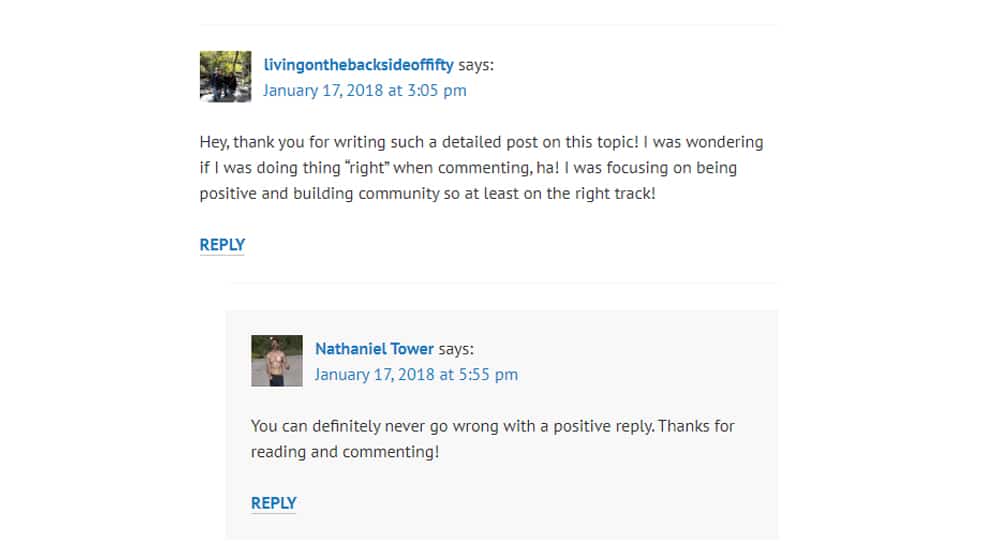
You can also share a link to the answer in the original discussion if it's still active and relevant. This method works best if you have a fast turnaround time and a broad level of expertise, but it's also just a great way to get more ideas for content.
Another interesting option is to become part of a conversation or start one based on content that is popular and trending. Identify a piece of content that has some room for a difference in opinion, and write content advocating that opinion.
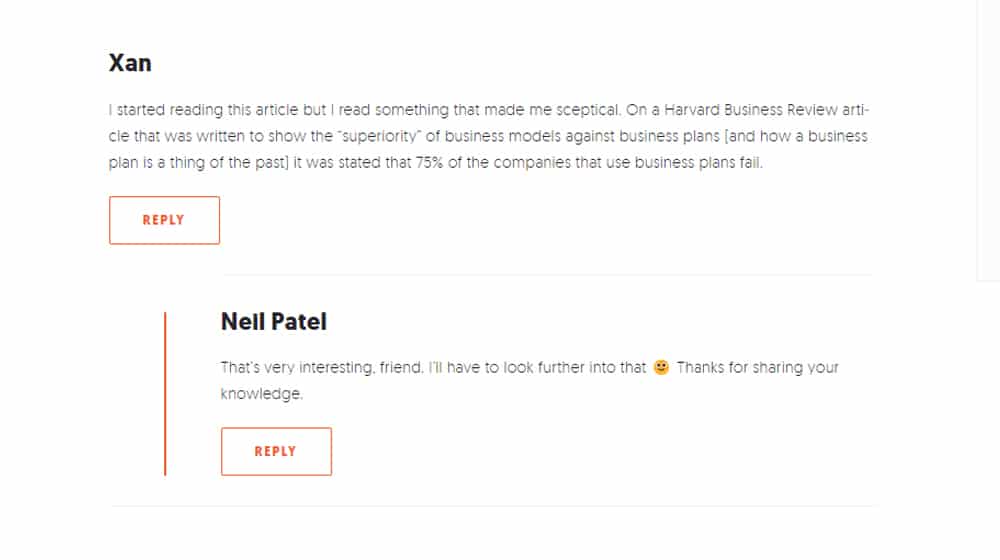
You can even wrap up with a conclusion that the original was right and you were just arguing for the sake of argument if you generally agree with the points being made. This can be a fun one because it can spur discussion between proponents of different perspectives.
"Anything you can do, I can do better" is an excellent motto to have as a content creator. In fact, it has been enshrined as a strategy known as 10x content. 10x content is content that is "ten times better than the inspiration."

It can be tricky to create, especially since so many others have been working on it themselves, so the average standard quality and depth of content is immense these days. Still, every niche has opportunities to single out weak content and outdo it, and it's a powerful strategy to leverage.
All too often, I see content creators write blog posts and then never look at them again once they're published. It's one thing to pay attention to comments, but it's another thing entirely to keep an eye on the content itself. Every so often, it pays to go back through your old content and perform something of a content audit.

A good content audit will do a lot for you, but one of the main benefits is to identify old content that can be refurbished and re-shared. Plenty of the topics you cover will be evergreen, or nearly so, and it won't take much work to bring them back into relevance.
Influencer marketing was all the rage a few years ago, and then it kind of dropped off when people collectively realized that about 85% of the people who call themselves influencers really weren't. That said, these days, you can still do influencer marketing; you just need to have a better idea of who you want to reach.

Of course, this makes influencers much more valuable, and you want to treat them accordingly. Consider this something similar to guest posting, where you create content tailored to their audience, and ask them to share it. It can work quite well!
Quora is a great site for a lot of different reasons. For one thing, real people ask real questions, and you can use those questions as inspiration for blog posts. You can also write "lite" versions of the posts and post them as answers, or vice versa; write answers and then expand those answers into full blog posts later.
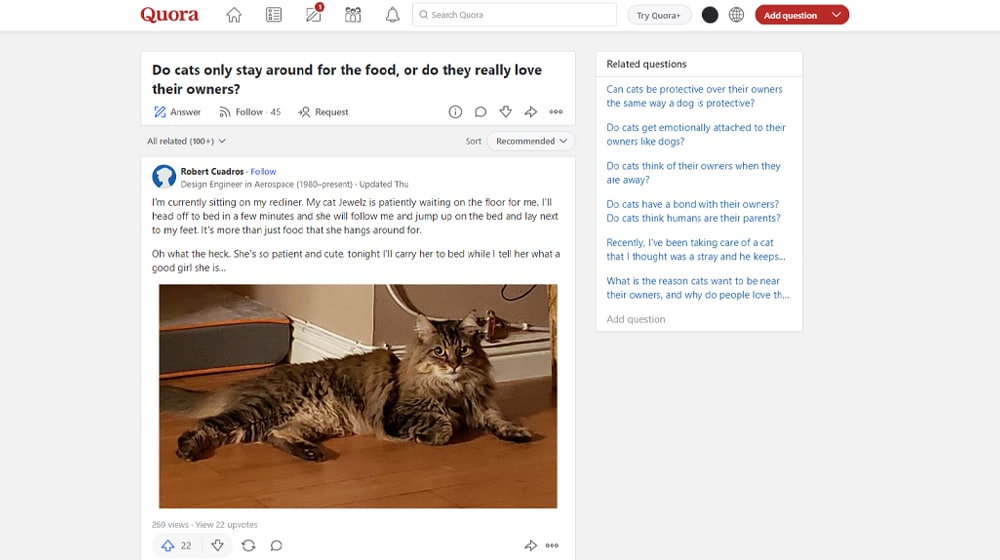
It's a great way to gather ideas and a great way to share those ideas when they're completed.
Just because you've written content doesn't mean you can't use it again. Content syndication is the "legal" way to repost your content on sites other than your own in a way that won't get you penalized by Google or slapped by a site for spam.
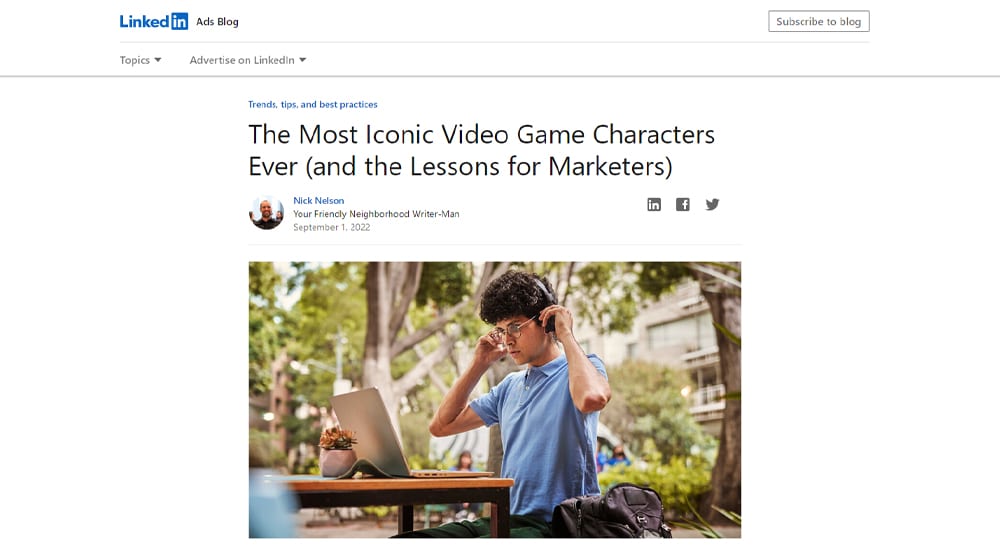
LinkedIn is one of the prime locations for content syndication, though you can also use Medium, and some industries have entire websites dedicated to content syndication. Yahoo News, for example, gets most of its content via syndication.
Medium has a lot of pros and a lot of cons as a platform. This isn't the post to go into detail about it, though. One thing Medium is great for, though, is as a venue to write content that you're interested in but which doesn't quite fit on your main blog.
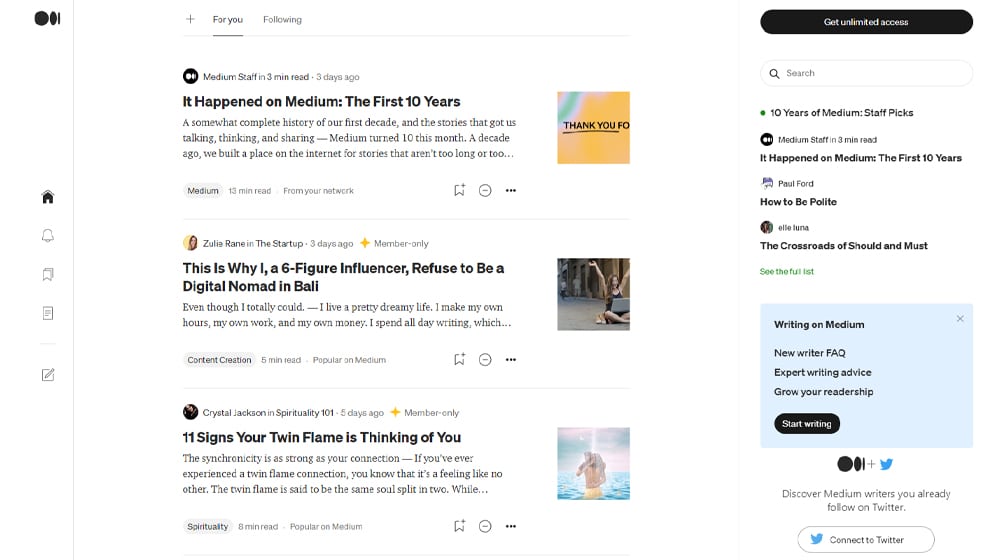
Those tertiary topics, special interests, or cool posts that just won't work otherwise can all fit nicely on a Medium spin-off blog.
A common piece of advice for blogging is to choose topics that are high search volume but low competition. Finding topics can be very difficult because if the search volume isn't high enough, they aren't worth covering, but if competition is too stiff, you won't get any traction.

I say, write it anyway. If it's a valuable enough topic, even if you don't rank in search for it, you can still gain traffic from manual sharing and have the potential to go viral anyway.
Writing doesn't have to mean text content. You can also write scripts for podcasts and YouTube videos, and produce them. Sure, it's harder than I make it sound, but it's a great way to reach an audience that otherwise wouldn't be interested in plain old text content.

If you can hook them with your videos, they'll be more inclined to read your longer content elsewhere. Also, the barrier to creating good videos has been dropping every year, with most of the equipment you need already built into your phone. The key, really, is in the editing.
Another way to repurpose and gain value from existing content is to expand your top-performing content into eBooks.

You can self-publish these and ask for an email address, which you can use for further communications, or you can publish them on Amazon or another eBook marketplace and sell them for a bit of profit. Of course, you'll need to do some heavy marketing to promote them.
There are a ton of different ways to bring people to your website for the first time. The trick is to get them to keep coming back. One of the best ways to do that is to create a newsletter. Ask for people to sign up for your newsletter in any way you can, and as you build a mailing list, send out something valuable every few days.

You might want a daily digest or a weekly roundup; whatever you choose, stick with it. Write valuable and unique content directly to your newsletter subscribers, and of course, encourage them to come get more on your site.
There are a ton of communities online made up of people just like the ones you want visiting your site. So, why not find them and go to where they hang out? It might be Reddit pages, Facebook groups, LinkedIn groups, or Discord servers; whatever it may be, find them and work your way into their communities.
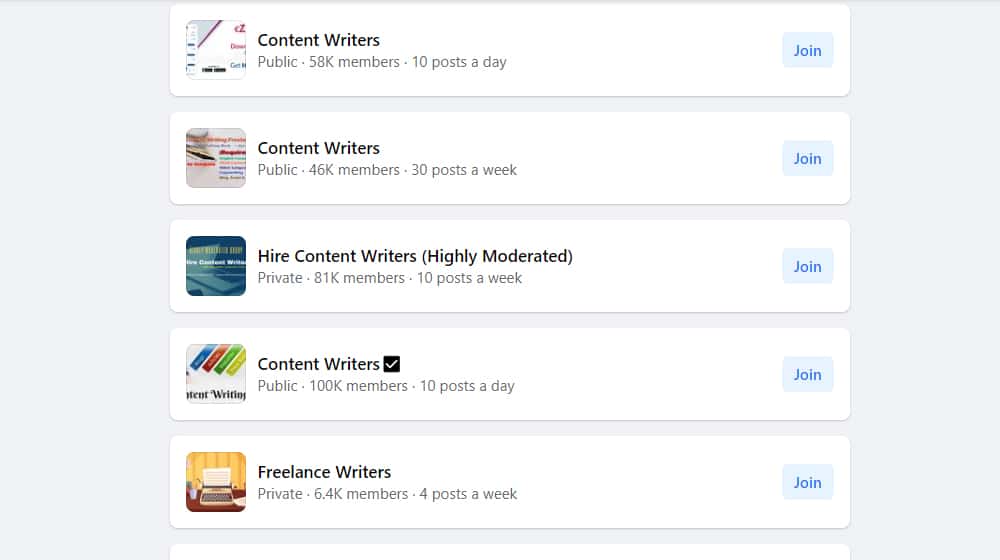
Then, you can share your content when it's valuable and not as blatant advertising.
Okay, so being an interesting person isn't directly a marketing strategy. What it is, however, is a great way to be memorable when people read your content. Use humor, establish a voice, and be real; people will connect with you and come back for more.

No matter how you plan to bring more people to your website, writing is at the core of it all.
With that in mind, why not pick up a few great freelancers over on our job board while you're already here?
We encourage you to share this article on Twitter and Facebook. Just click those two links - you'll see why.
It's important to share the news to spread the truth. Most people won't.